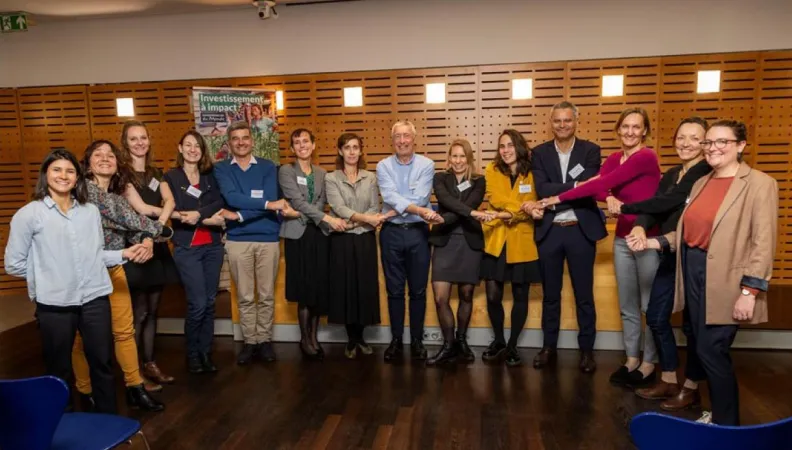Share the page
Microfinance Solidaire pursues its support for microentrepreneurs, backed by Proparco
Published on

AFD Group and Microfinance Solidaire (MFS) are strengthening their partnership, launched in 2016, through a new €2 million loan to support MFS's activity in favour of partner microfinance institutions and social enterprises.
Microfinance Solidaire (MFS) was set up in 2010 by the NGO Entrepreneurs du Monde (EdM) to meet the financing needs of the social enterprises it incubates. It currently supports around twenty microfinance institutions (MFIs) and social enterprises working to provide access to energy in sub-Saharan Africa, South-East Asia and Haiti, mainly in fragile countries characterized by low financial inclusion and high levels of fuel poverty.
Proparco's loan to MFS will have a positive impact on reducing gender inequalities, as 88% of the final beneficiaries are women. The project will also make it possible to support the financing of the agricultural sector (37% of loans granted) and, more generally, economic development in the countries where MFS operates. Finally, MFS is committed to ambitious social and environmental (E&S) performance management to promote responsible financial inclusion.
For Emmanuelle Riedel-Drouin, Proparco's Director of Financing, ‘ We are proud to support an institution as committed as Microfinance Solidaire to financial inclusion in rural areas. The role that MFS plays undeniably contributes to reducing inequalities, by supporting microfinance institutions and social enterprises providing access to energy, and by supporting the financing of the agricultural sector, against a backdrop of weakening food security in Africa ‘.
For Mr Fathi Nouira, Chairman of Microfinance Solidaire, ‘ We are honoured by the trust placed in Microfinance Solidaire by Proparco. It is the fruit of several years of committed and transparent collaboration between Entrepreneurs du Monde and AFD Group. The future challenges in the countries where we operate are colossal, and Proparco's renewed support will enable us, on our own scale, to continue to fight poverty and social inequality, to defend gender equality and to promote clean energy for people in very precarious situations’.
The project will thus contribute to Sustainable Development Goals 1 (‘Poverty reduction’), 3 (‘Good health and well-being’), 5 (‘Gender equality’), 7 (‘Clean and affordable energy’) and 10 (‘Reduced inequalities’).
